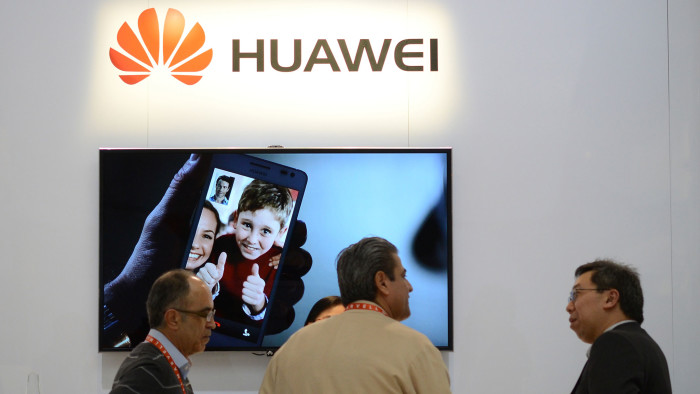Huawei open to Nokia deal but says Windows mobile remains weak

Simply sign up to the US & Canadian companies myFT Digest -- delivered directly to your inbox.
Huawei would consider buying Nokia to help it become the world’s leading smartphone maker, according to the head of the Chinese telecom group’s consumer business.
“We are considering these sorts of acquisitions; maybe the combination has some synergies but depends on the willingness of Nokia. We are open-minded,” said Richard Yu, chairman of Huawei’s consumer business group, ahead of a glitzy launch of its latest premium smartphone, the Ascend P6, in London.
Huawei hasn’t made any major acquisitions in the past, and those close to the group caution that nothing is on the table. But Mr Yu’s bullish comments underline the company’s rapid progress in the mobile phone market and its ambitions to challenge Samsung and Apple for leadership of the smartphone market.
Mr Yu predicted that the smartphone market would consolidate to about three or four companies – and warned that Microsoft’s Windows phone platform used by Nokia as well as Huawei was “weak”. Huawei has mostly adopted Google’s Android operating system for its smartphones.
“Whether Windows Phone [will be] successful is difficult to say – it has a very small market share. [Windows Phones] are weak but still require a licence fee. That’s not good. Android is free.”
Even without acquisitions, Huawei has become the third-largest manufacturer of smartphones by volume behind Samsung and Apple, and Mr Yu said that the company aimed to beat internal sales targets of 55-60m smartphones this year. The pace of growth is such that Mr Yu complained about a shortage of component supplies, which has slowed down manufacturing.
“Twenty years ago, we were nothing but now we have the best quality [phones] and our customers say we are the best,” he said. “We want to shorten the gap with competitors. We want to lead.”
He said that the group, once known for its cheap and basic “feature” phones, will move towards only selling “smart” internet connected phones using its own brand name rather than selling “white label” versions through network operators.
Huawei is investing heavily in producing the next generation of smartphones technology – aiming to be slimmer, lighter and faster than best selling Samsung phones – as well as in wearable smart devices similar to the Google Glass or the rumoured Apple watch.
This week, Huawei is staging its largest Western launch of a premium phone with the Ascend P6, one of the slimmest smartphones on the market. The Ascend P6 has similar specifications as the latest devices from Samsung and Apple, but will be on sale at a lower price.
“I don’t want to ship feature phones any more,” said Mr Yu, adding that Huawei wanted to be seen as the best phonemaker but also with the most reasonable price.
The group’s handset business has not been subject to the same sort of scrutiny over security as its larger equipment business, although Mr Yu said that its focus was mainly on markets outside the US, where concerns were raised following a critical congressional report last year.
Comments